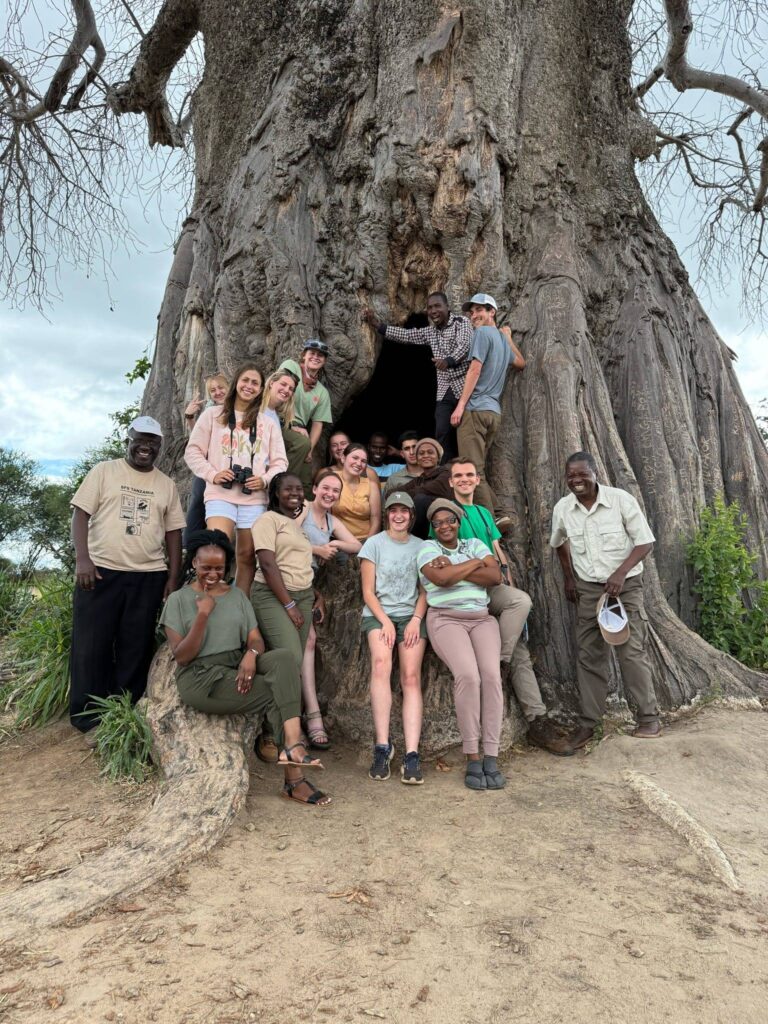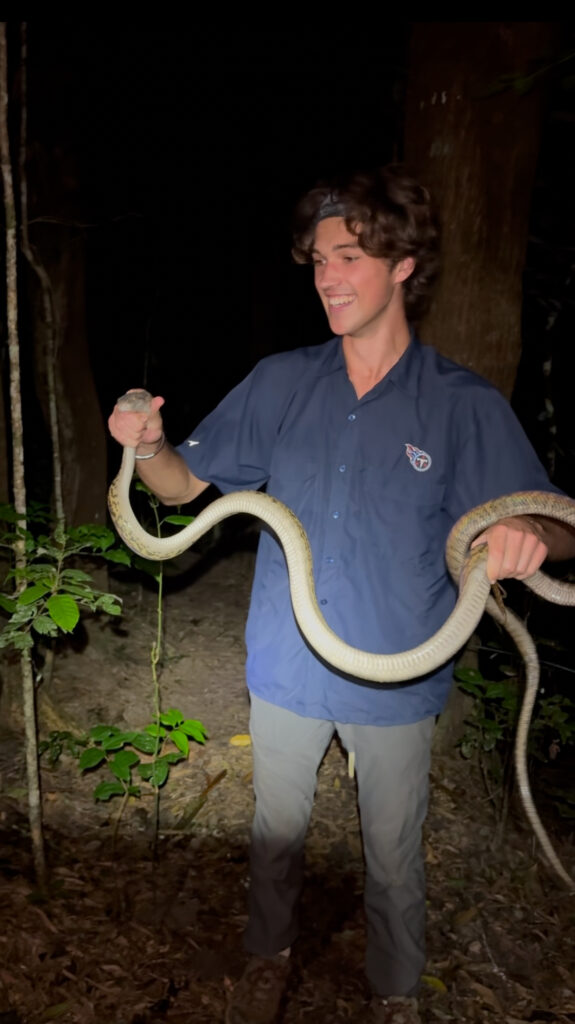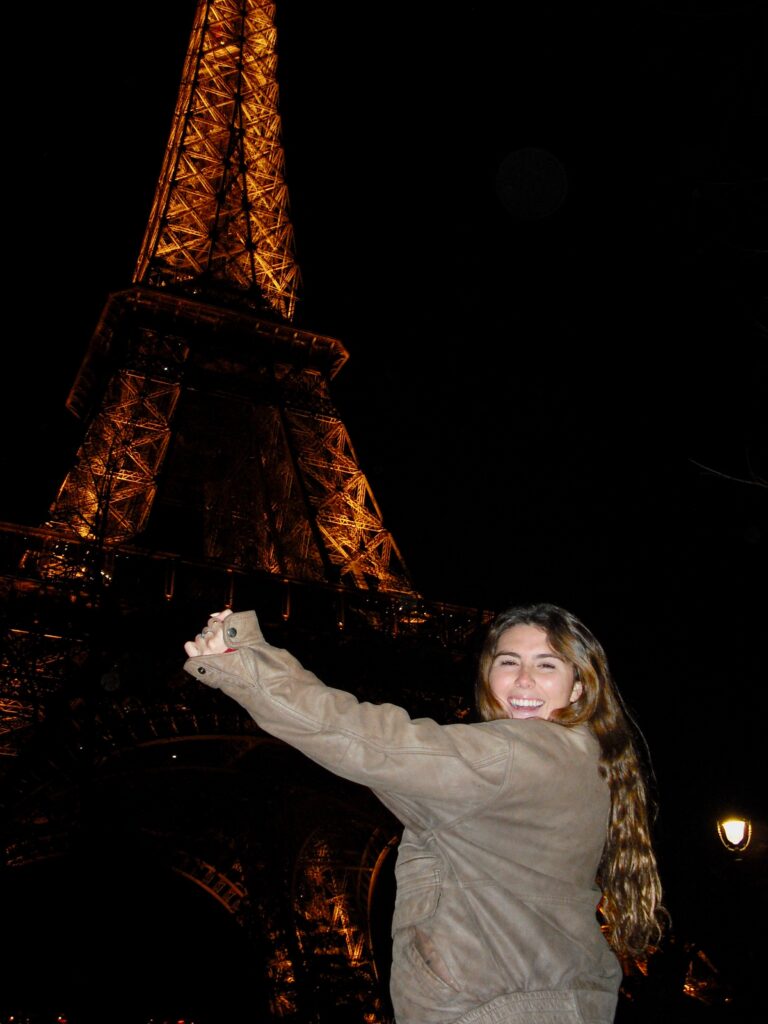Trading dorm rooms for host families and Brown Chapel for cathedrals, each semester, Point Loma Nazarene University students choose to study overseas. Through PLNU’s Study Abroad Program, they have an opportunity to study and live in a foreign country, exploring their studies, faith and future calling in a global context.
Toni Vasquez, a third-year business management major, was opposed to the idea of studying abroad until she traveled to Europe with her mom the summer after her first year at PLNU. After the trip, she decided to study abroad in Barcelona, Spain. This experience led to her current job as a study abroad ambassador on campus.
“I always knew there was so much more out there than just what I was seeing,” Vasquez said. “I met so many people from so many places while I was abroad, and that really affirmed that idea.”
With faith opportunities being readily available within the PLNU community, including chapel, worship nights and Bible studies, Vasquez said she became burnt out. But when she arrived in Barcelona, those opportunities were harder to find.
“With all of that being taken away, it really forced me to actually dig my feet deep in the sand,” Vasquez said. “This was the first time that it was genuinely my own faith in the sense [that] there were no catalysts, there were no aids.”
Alexander Kuhn, a third-year environmental science major, studied abroad in the Atherton Tablelands of Northern Australia last spring semester. Living in a small cohort of students in the middle of the Queensland rainforest, Kuhn also felt more isolated in his faith.
While he said he prefers to keep his faith to himself, Kuhn felt inclined to seek out faith opportunities more than he would’ve at PLNU.
On Easter, Kuhn asked someone in his program for a ride to a local church, and to his surprise, a few others decided to join him.
“I was able to not just get myself to church but other people to church for Easter, too, which was really cool because I don’t think I’d ever had an experience like that,” Kuhn said.
Brian Becker, the director of International Ministries and Study Abroad, explained the goals behind the university’s study abroad program.
“Our PLNU mission is all about developing our minds and our character while engaging in service as part of our faith,” Becker said in an email interview. “That growth happens as we move in cultural contexts in an interconnected world. Study abroad strengthens our cultural self-understanding as we learn about cultural differences and, hopefully, build relationships not just with other study abroad students.”
Ava Wangen, a third-year environmental science major, studied abroad in Tanzania last summer. Wangen said her faith was both strengthened and challenged while abroad. While she could not attend church or stream a service because of poor Wi-Fi, Wangen said she was able to see and study God’s creation in new ways.
“I believe that studying creation is a way to study the Creator, so seeing unique landscapes and beautiful animals was incredibly special,” Wangen said in a text message interview. “The interactions between a lion cub and its mother or a herd of elephants were so precious and can be a good picture for the way that God loves us and cares for us.”
Kuhn said he feels closest to God in nature and believes that caring for creation is a vital part of his faith.
“24/7 getting to be in nature … was one of the closest times I’d ever felt to [God],” Kuhn said.
Vasquez had a similar faith experience while in Barcelona. She attended the International Church of Barcelona, one of Spain’s only English-speaking nondenominational churches. But with Spain being overwhelmingly Catholic, Vasquez witnessed new forms of worship and service to God.
“It’s really cool because it’s not just this Western cookie-cutter Christianity — it’s Christianity [in] a different form,” Vasquez said.
While faith is an important aspect of many students’ study abroad experience, exploring both vocational and personal development is another cornerstone of the program.
Wangen said that living in a different culture made her realize how fast-paced U.S. culture is. While Western culture tends to focus on consumerism, Wangen said that Tanzania has a community-focused culture that feels refreshing.
“They have a saying, ‘pole pole,’ which means ‘slowly,’ and there was an emphasis on taking your time and being more laid back,” she said.
Wangen was also able to interact with the local village children. Despite difficulty understanding each other’s languages, their shared humanity was clear.
“Whenever we would walk around in the village, little kids would come running up to us to walk with us or have us swing them around,” she said. “Other times, we would play volleyball or card games with the locals. We couldn’t really understand each other, but the joy and love was obvious even through a language barrier.”
Kuhn said that studying abroad in Australia taught him the importance of hands-on learning and immersing himself in his field of environmental science. He felt that he was finally doing what he came to college to do.
“[Studying abroad] really just cemented that this is my calling … this is what I’m supposed to be doing,” Kuhn said.
Vasquez said that studying abroad shattered any fear of traveling, bringing a new sense of confidence, especially when it comes to post-graduation travel.
“[Studying] abroad taught me that there’s no limit on what you can do,” she said. “I feel like when you go and you travel and you really get that experience firsthand, you feel super unstoppable. … It brought this newfound sense of freedom.”
Becker said that students will often come to him and recount their experiences while abroad.
“By far, the first thing students tell me when they return to PLNU is, ‘This is the best thing I have ever done,’” Becker said. “They go on to tell me that the experience was not entirely pleasant; of course, there were good days and hard days. Yet there was learning and growth in all of it.”
Becker urges hesitant students not to let fear keep them from studying abroad.
“I think the main thing that holds us back is fear of the unknown, discomfort, looking foolish, being distressed, being in less contact with our support persons,” he said. “We have to go into the cave of the unknown and look our fears in the face to see that we’re stronger than we thought we were. Don’t be limited by your fears.”



